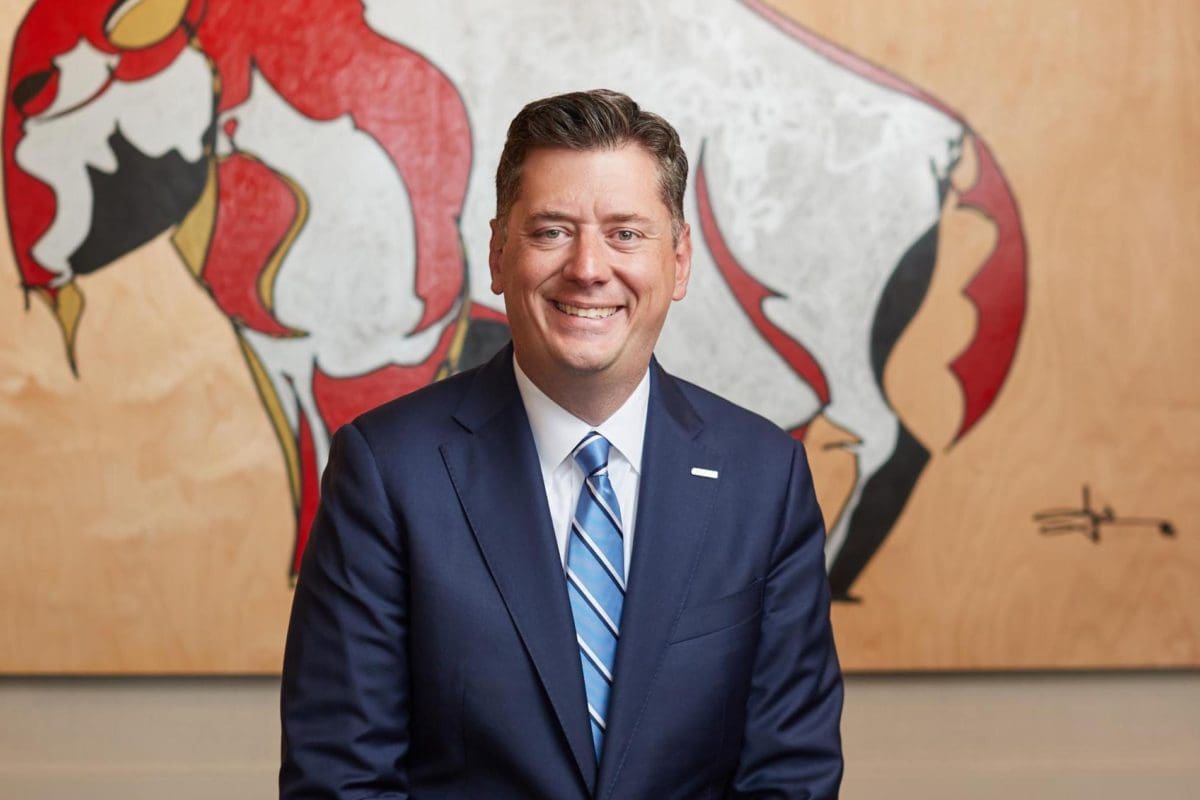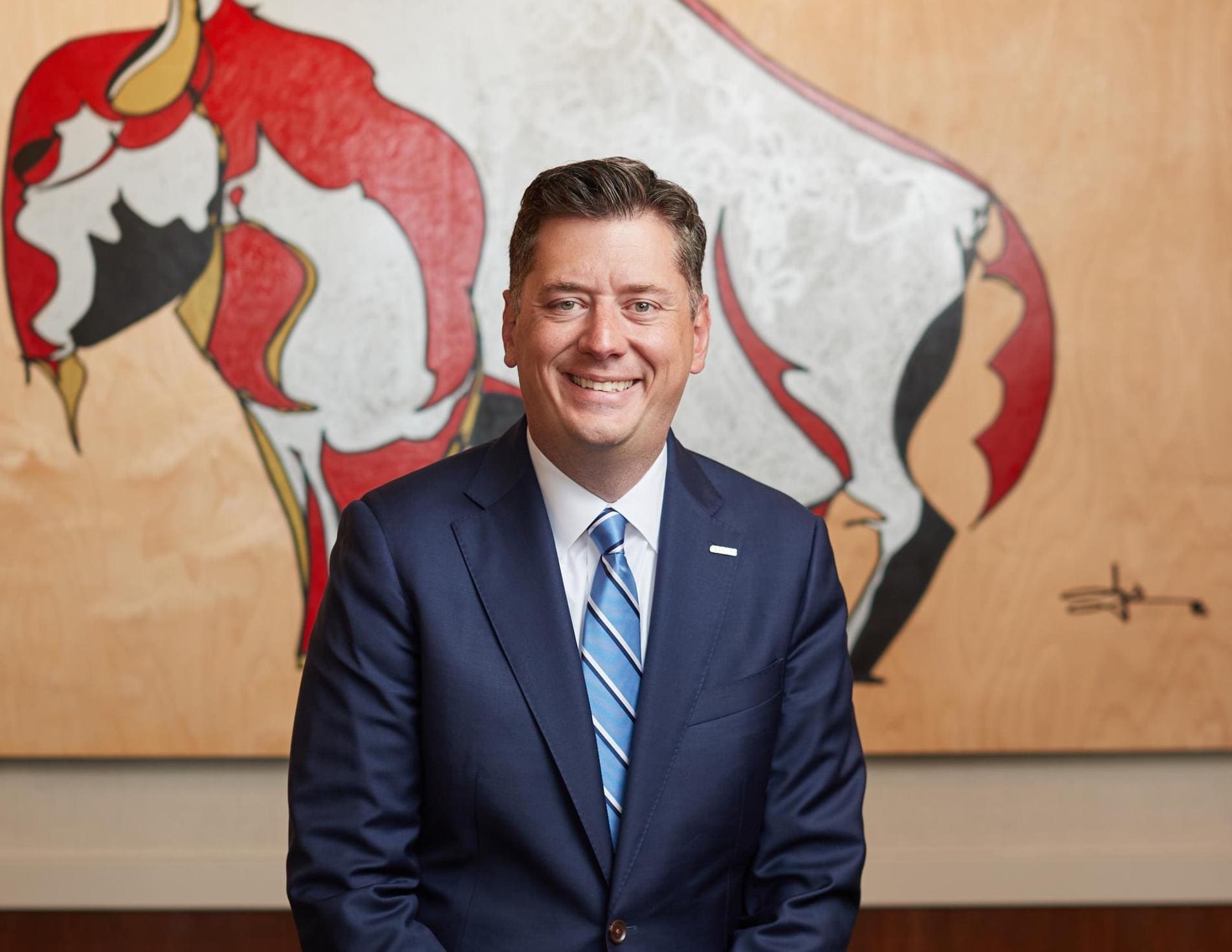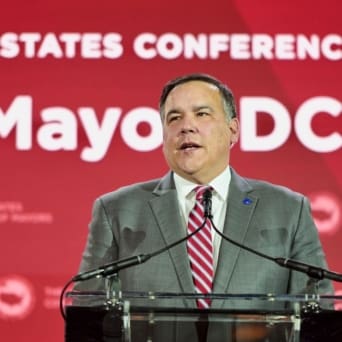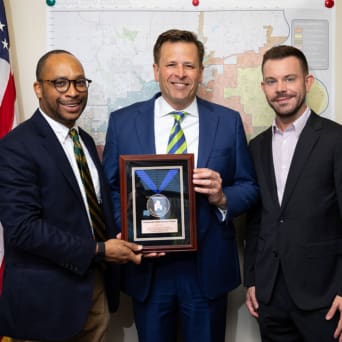By Mayor David Holt
CityHealth is inviting local leaders to discuss how they approach public health in their governance. This blog comes to us from Oklahoma City Mayor David Holt, who also serves as second vice president of the U.S. Conference of Mayors.
Can you describe your role as mayor?
As mayor of Oklahoma City, I’m the person most responsible for setting the city’s direction, both as a city government and as a larger community. In reality, in any democratic system, it takes a whole lot of people and entities coming together to create and implement a vision. But I have also found that there is no substitute for the mayor, and only a mayor can rally a community. It’s difficult — if not impossible — to accomplish big things without the mayor’s leadership.
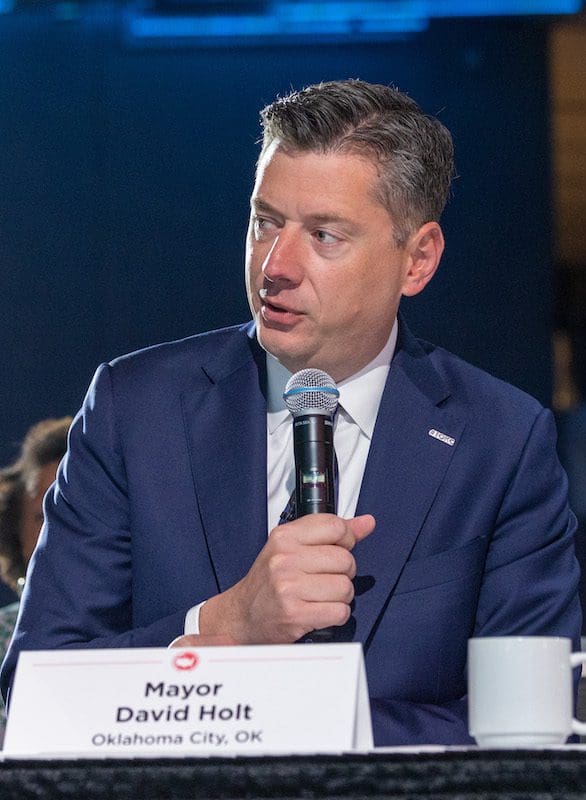
Mayor Holt speaks at the U.S. Conference of Mayors meeting in Columbus, Ohio, in June. (Photo by Allison Shelley/USCM)
What brought you to this work? Do you have a personal connection to the field of public health and policy?
I’m born and raised in Oklahoma City, and I have always been around public service. Being mayor of Oklahoma City brings together many of my lifetime interests. I served in the White House and in the U.S. Capitol after graduating from college in D.C. Coming back home almost 20 years ago, I ended up serving as chief of staff to my predecessor mayor, and in the Oklahoma Senate for eight years. Being a part of the group of people leading a community is what I love. To the second question, before I was born, my mother worked for our Oklahoma state department dedicated to mental health and substance abuse services.
How would you describe the role of city leaders in improving public health? What makes city leaders particularly situated to improve health in their communities?
This can probably vary across cities, but in 2020 we all became public health leaders. Now that we’re in more normal times, the city government still plays a role, even if it’s not so out front on a daily basis like it was in 2020. I appoint a majority of the members to our city’s health department board. And our city government is funding mental health crisis centers and substance abuse centers in a major initiative approved by the voters called MAPS 4. This package of diverse projects and programs is a novel new endeavor for us and illustrates that these are rising issues that our residents want to see addressed — at least partially — by city government. Local leaders are positioned to support this work in many ways. If we have the funding to help, that’s great. Mayors and local leaders are some of the last leaders left in America that residents really trust. We get things done. So, when we talk about these issues, people generally listen.
Can you describe a policy or initiative that you spearheaded in your leadership that improved the health and well-being of your residents? What motivated you to implement this policy or initiative, and what was its outcome?
We were very proud of our COVID-19 response in Oklahoma City. That was something I really owned on a personal level for a year or more. I was talking to our public health director, Dr. Patrick McGough, several times a day for a very long time — and of course communicating with our residents, making policies, and leading by example. Almost 1,000 fewer people died of COVID-19 than would have if Oklahoma City had the same death rate as the rest of the State of Oklahoma. The comparison between Oklahoma City and the rest of Oklahoma is a perfect case study for what it looks like when you have leadership that takes public health seriously, versus the alternative. We can see in the data that our attention to the issue literally saved nearly a thousand lives. That’s the power of public health.
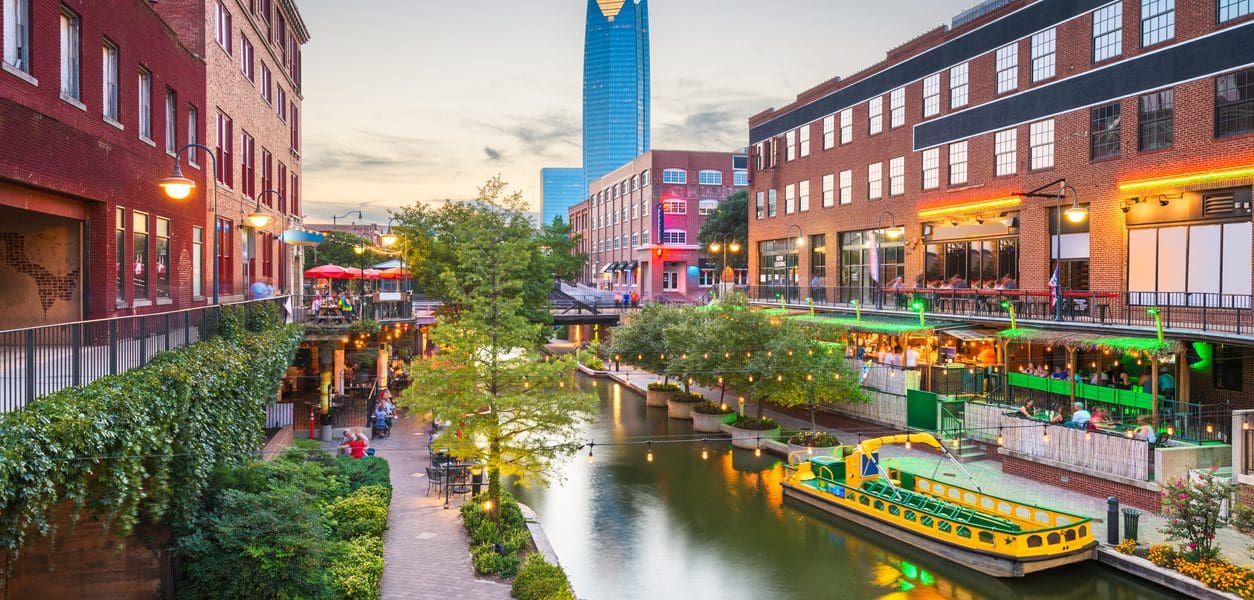
Bricktown in Oklahoma City.
How have you worked to advance health equity on the local level?
I think this remains a huge challenge, but I’m proud of our city’s health department for opening two new facilities in the last decade in the geographic centers of two important communities in our city — the Black community and the Latino community. Proximity to services makes a huge difference, and we have that with these facilities. Ensuring health equity in Oklahoma City is very important both to me as mayor and to our health department.
What’s your message for other local leaders when it comes to creating healthier, more equitable cities? What actionable solutions can decision-makers explore to improve public health in their communities?
Every local government is organized differently, but even in Oklahoma City, where we traditionally had no role in mental health and substance abuse, we’ve found a way to make new investments through our MAPS 4 initiative. My advice to local leaders: just do what you can. Take a step forward, even if it seems like a small one. These challenges need all the support they can get.
Mayor David Holt was elected as Oklahoma City’s 38th mayor in 2018. He also serves as dean of the Oklahoma City University School of Law.

